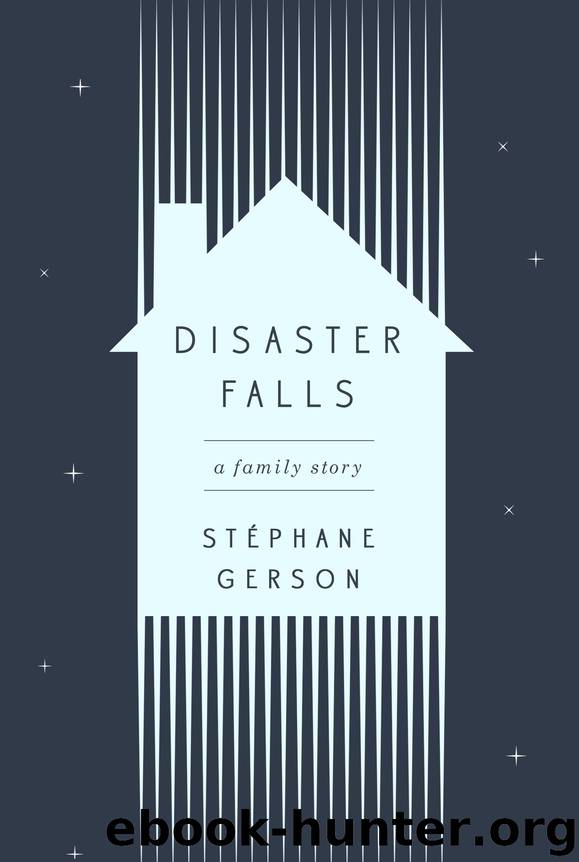Disaster Falls by Stephane Gerson

Author:Stephane Gerson
Language: eng
Format: epub
Publisher: Crown/Archetype
Published: 2017-01-23T16:00:00+00:00
Ella: Where were you when it happened?
The people for whom I longed—available whenever I needed them, still open to the world, ready to share their experiences without expecting me to reciprocate—did not exist, at least not anywhere I could see. To find such bereaved parents, I had to canvass other centuries. An important part of my mourning that first year took place in eras other than my own.
I had begun with Victor Hugo but found others. In the Renaissance, the astrologer Nostradamus lost his wife and two children to the plague epidemic that devastated Provence in the 1530s. While he mourned them privately, this ordeal allowed him to touch and capture in poetic prophecies the suffering and disquiet that so many of his contemporaries felt during those tumultuous times. Across the English Channel, Ben Jonson and Shakespeare expressed their sorrow for their departed sons in harrowing verses. “My sin was too much hope of thee, loved boy,” Jonson wrote. “Seven years thou wert lent to me.” Shakespeare included a bereaved mother in King John, the first play he wrote after his son’s death in 1596. “Grief fills the room of my absent child, / Lies in his bed, walks up and down with me.”
While some of these bereaved parents had attained fame, most were ordinary folk who had left a record of their suffering. Around 1800, a Burgundian notary by the name of Jean-Baptiste Boniard lost two of his children, including his five-year-old daughter Adèle, who succumbed to scarlet fever. He kept a detailed account of his last conversation with the girl, the “rosebud” who liked to kiss and comfort her father and died while reciting a fable to him. I found this out by chance, while reading the reminiscences of his grandson. Boniard was a fascinating character (local politician, journalist, amateur archaeologist and astronomer), but his relationship with his late daughter told me everything I wanted to know about him.
Decades later, Victorian parents mounted images of deceased children on matchboxes with “lovely little scrolls” and snippets of hair. Charles Darwin kept objects that had belonged to his daughter Anna, as well as her writings, in a box that he built. The English widower John Horsley said he felt better when he wrote about the four sons and daughter he had lost to illness. The American Henry Bowditch, father of a soldier who died in Virginia in 1863, recovered his son’s body and then compiled memorial volumes and scrapbooks about his life. This is not how men were expected to grieve. Bowditch understood this, but he maintained his course. “The labor was a sweet one,” he wrote. “It took me out of myself.”
And the Englishwoman Janet Trevelyan—she wrote everything she could recall about her son Theo after his death in 1911: “I know that as we get further from the pain of these last days the pure joy and beauty of his little life will shine out more and more and will be like a light in our hearts to illuminate the rest of our way.
Download
This site does not store any files on its server. We only index and link to content provided by other sites. Please contact the content providers to delete copyright contents if any and email us, we'll remove relevant links or contents immediately.
They Both Die at the End by Adam Silvera(9818)
Thirteen Reasons Why by Jay Asher(8907)
The Space Between by Michelle L. Teichman(6939)
Suicide Notes by Michael Thomas Ford(4826)
Tuesdays with Morrie by Mitch Albom(4783)
Suicide: A Study in Sociology by Emile Durkheim(3022)
The Checklist Manifesto by Atul Gawande(2852)
Tuesdays With Morrie by Mitch Albom(2761)
In the Woods by Tana French(2598)
Bossypants by Tina Fey(2530)
Robin by Dave Itzkoff(2440)
Olive Kitteridge by Elizabeth Strout(2370)
No Ashes in the Fire by Darnell L Moore(2332)
Reservoir 13 by Jon McGregor(2302)
End of Days by Sylvia Browne(2186)
All Things New by John Eldredge(2161)
Bus on Jaffa Road by Mike Kelly(2159)
Scar Tissue by Anthony Kiedis(2135)
No Time to Say Goodbye(2115)
